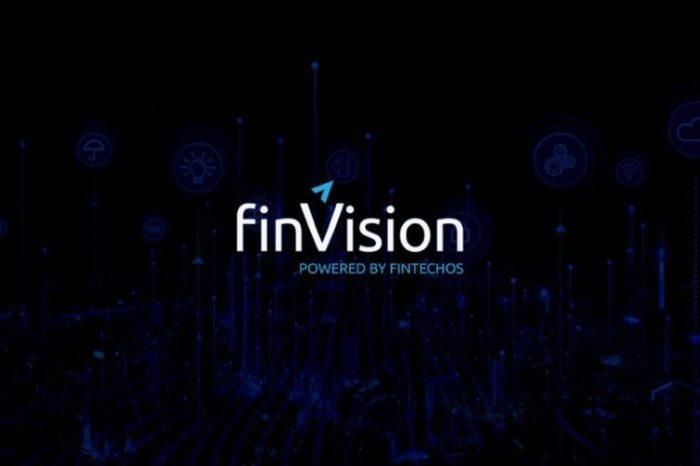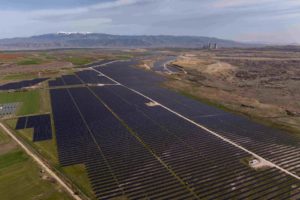Fonduri-structurale.ro – the new financial hub in Romania

“We are now at the end of the 2014-2020 financial period and starting next year new opportunities will emerge for the 2021 – 2027 financial period. SMEs and NGOs that identify a need for development first need to look for financing programs that might address their particular necessities,” Raluca Prelucă, Partner & Senior Consultant fonduri-structurale.ro, Co-founder consolid8 told The Diplomat-Bucharest.
“2021 will create huge opportunities with EU financing for the Romanian SMEs and public sector (Romania will benefit from 30 billion euros under the Recovery and Resilience Facility put in place by the European Commission).”
What are the steps to be followed for the implementation of non-reimbursable financing?
We are now at the end of the 2014-2020 financial period and starting next year new opportunities will emerge for the 2021 – 2027 financial period. SMEs and NGOs that identify a need for development first need to look for financing programs that might address their particular necessities. On www.fonduri-structurale.ro we gathered all EU financing opportunities in Romania and we are always updating the information based on official data. If you create an account on the website you have access to draft project sheets and detailed information on project calls.
When a call for proposals opens, the companies will have to develop and submit a project for their idea. Their proposal will be evaluated and based on their scoring they will be invited to sign the financing contract. When implementing an EU funded project, the beneficiaries will have to follow specific rules for public procurement and reporting. Over the past years, the red tape associated with EU funding has reduced.
What are the most popular programs co-financed by European funds in Romania?
Usually, the calls addressing start-ups or microenterprises (up to 9 employees) are the most sought after (Romania Start-up Plus). For the private sector, we currently have programs addressing either start-ups (with small amounts of financing – 40-50k Euro) or financial stable SMEs (with financing ranging between 200k – 5 million Euro).
One important thing to keep in mind is that EU funding has very specific objectives in terms of job creation or innovation and that every call has a list of eligible expenditure. Not always the list of eligible expenditure fits the needs of the businesses looking for investment. That is why there is a funding gap on the market and that is why new financing instruments are needed.
In terms of budgeting, the EU programs that have the largest amounts of the available financing target public investment (transport infrastructure, environment issues, energy efficiency etc.).
How would you describe the year 2020 from the perspective of the fonduri-structurale.ro team? How did the pandemic influence your activity?
It’s been a very busy year! When we started 2020, we were working on the acceleration programs through which we are supporting more than 150 start-ups. When the pandemic hit, we started focusing on finding solutions to ensure that our supported start-ups survive the crisis (gathering new financing opportunities in the COVID-19 context, proposing solutions to national authorities). Our page dedicated to calls for grants active during the lockdown was met with overwhelming interest by thousands of SMEs and NGOs throughout the country. It was clear that entrepreneurs all over Romania needed new financing instruments. At that point we already had been thinking for two years to develop a crowdfunding platform. We felt that this need became urgent and so we concentrated all our efforts into developing consolid8 – a free crowdfunding instrument targeting at this point the creative industries and the social entrepreneurs, two of the most hardly hit businesses by the pandemic. Consolid8 will facilitate product validation and capital for businesses through rewards-based crowdfunding.
What trends have you noticed this year in terms of attracting European funds?
Everything is changing: from both the applicants’ point of view and the authorities.
Businesses that never before taught about accessing non-reimbursable funds are now applying for grants. European funding brings a sense of stability, even though the procedures for managing the grants are not as flexible as those of other financing bodies.
The national authorities fast-forwarded this year several calls for proposals in the COVID-19 temporary framework decided by the European Commission. The authorities created in just a few months an online system to manage 1 billion euros for SMEs – it is the first national system the is integrated with several national databases (for personal identification, the Commerce Registry, the National Agency for Fiscal Administration). There is a strong need for digitization and the measures to introduce digitization in the public and private sector has been accelerating this year in managing EU funding.
What are your expectations for 2021 and what do you think the challenges will be?
2021 will create huge opportunities with EU financing for the Romanian SMEs and public sector (Romania will benefit from 30 billion euros under the Recovery and Resilience Facility put in place by the European Commission) .
2021 will be the first year since we are members of the EU when we will have such a large number of EU funding beneficiaries implementing projects at the same time (the authorities estimate that at least 55k SMEs will receive financing under the COVID-19 temporary framework). Making sure that the money is put to good use will be challenging for the resources of the national authorities. We hope that the companies will benefit from adequate support in order to keep errors to a minimum. The success of these financing lines will be grounds for further simplification of how EU funding is distributed and spent.
2021 will be the first year of the new financial period and we hope that current consultations on the new programs will be intensified in order to better identify the financing needs of the market. The EU funding will not be able to cover all the requirements of the Romanian entrepreneurs, as EU money mut be spent according to European priorities. We hope that more and more entrepreneurs will use alternative financing solutions, such as our crowdfunding platform – consolid8. We will channel our efforts into supporting campaign initiators and finding new ways to develop our platform, to develop ethical and fair behaviour in the communities, to attract investors and to educate the public towards involvement. We truly believe that the public will understand that they can become an investor in the ideas they believe in or resonate with.
Raluca Prelucă is a senior consultant & partner at fonduri-structurale.ro. She has over 10 years experience in financing solutions for SMEs, start-ups, innovation and NGOs. She joined fonduri-structurale.ro in 2010 and since then she worked on different project management positions in dozens of projects, with focus on entrepreneurship & innovation starting 2015. She has experience in writing and implementing projects with EU funding: HORIZON 2020 (SME Instrument – EIC Accelerator), European Social Fund, European Regional Development Fund and also projects planned for calls for proposals managed directly by different European Commission DGs: EASI, DG Regio. She is also a senior editor and analyst for fonduri-structurale.ro and consolid8 co-founder
Photo: consolid8 team














